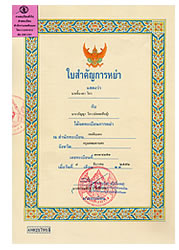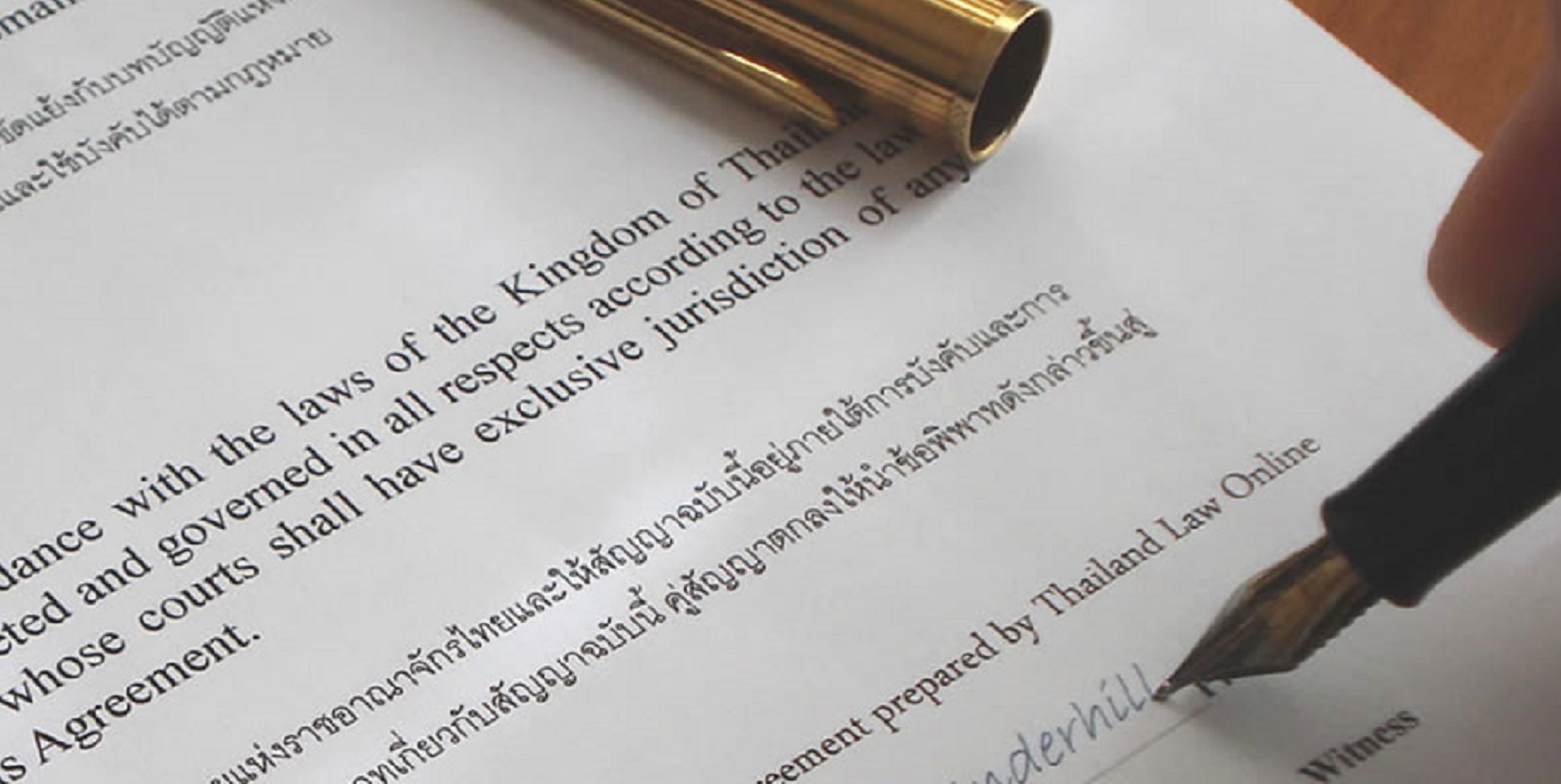
Marriage law
divorce grounds in Thailand
Divorce formally terminates marriage in Thailand and is the legal ending of a marriage. Divorce in Thailand means the dissolution of a marriage by the judgment of a court pursuant the grounds for divorce as listed under section 1516 of the Civil and Commercial Code or by the Amphur in Thailand upon request in person by both spouses and when there is mutual consent on the terms of divorce between husband and wife.
The Amphur or Amphoe is the district government administrative office. The district offices are responsible for marriage registrations and have the authority to again dissolve a marriage in case of a divorce on mutual consent.
How to get a divorce
Divorce: Mutual consent divorce
A divorce before the Amphur in Thailand requires agreement between both spouses to the division of marital or jointly owned assets, custody of children and if and how much alimony will be paid. If no agreeable solution can be found between the parties themselves, each spouse can file a petition for divorce (only on the grounds given in the Civil and Commercial Code) for the dissolution of the marriage by the court and the court can terminate the marriage and will decide on matters like division of marital assets according to Thai law and individual circumstances. When both parties agree on the terms of the divorce (mutual consent) the procedure at the local Amphur will be shorter, less expensive and less time consuming. No direct Thai lawyer representation is required, but husband and wife must agree on all types of potential issues such as division of properties, spousal/ child maintenance and child custody. It could be recommended to draw up a divorce settlement agreement with a lawyer before heading for the district office for a divorce. It is not required that the parties request a divorce at the same location where the marriage is registered, but both husband and wife must be personally present when filing for a divorce on mutual consent.
Divorce by the judgment of the court
A contested divorce, i.e. dissolution of the marriage by the judgment of the court in Thailand, will take considerably more time, money and requires several court appearances and representation of a Thai lawyer. Grounds of action for a contested divorce are as follows:
- one spouse (husband or wife) has given maintenance to or honored such other person as wife or husband, committed adultery or had regular sexual intercourse with such other person, such other spouse may enter an action for divorce;
- one spouse is guilty of misconduct, notwithstanding whether such misconduct is a criminal offence or not, if it causes the other:
- (a) to be seriously ashamed;
- (b) to be insulted of hated or account of continuance of being husband or wife of the spouse having committed the misconduct; or
- (c) to sustain excessive injury or trouble where the condition, position and cohabitation as husband and wife are taken into consideration;
- one spouse has caused serious harm or torture to the body or mind of the other, or has seriously insulted the other or his or her ascendants, the latter may enter a claim for divorce
- one spouse has deserted the other for more than one year, the latter may enter a claim for divorce;
- one spouse had been sentenced by a final judgment of the Court and has been imprisoned for more than one year in the offense committed without any participation, consent or in the knowledge of the other, and the cohabitation as husband and wife will cause the other party sustain excessive injury or trouble, the latter may enter a claim for divorce;
- The husband and wife voluntarily live separately because of being unable to cohabit peacefully for more than three years, or live separately for more than three years by the order of the Court, either spouse may enter a claim for divorce;
- one spouse has been adjudged to have disappeared, or as left his or her domicile or residence for more than three years and being uncertain whether he or she is living or dead;
- one spouse has failed to give proper maintenance and support to the other, or committed acts seriously adverse to the relationship of husband and wife to such an extent that the other has been in excessive trouble where the condition, position and cohabitation as husband and wife are taking into consideration, the latter may enter a claim for divorce;
- one spouse has been an insane person for more than three years continuously and such insanity is hardly curable so that the continuance of marriage cannot be expected, the other may enter a claim for divorce;
- one spouse has broken a bond of good behavior executed by him or her, the other spouse may enter a claim for divorce;
- one spouse is suffering from a communicable and dangerous disease which is incurable and may cause injury to the other, the latter may file a claim for divorce;
- one spouse has a physical disadvantage so as to be permanently unable to cohabit as husband and wife, the other may enter a claim for divorce.
----- (thailandlawonline copyrights 2018) ----
Marriage law in the Civil and Commercial Code of Thailand
BOOK V TITLE I, MARRIAGE
- Part I Betrothal → Sections 1435 - 1447
- Part II Conditions of Marriage → Sections 1448 - 1460
- Part III Relationship of Husband and Wife → Sections 1461 - 1464
- Part IV Property of Husband and Wife → Sections 1465 - 1493 (personal and marital assets)
- Part V Void of Marriage → Sections 1494 - 1500 (annulment)
- Part VI Termination of Marriage → Sections 1501 - 1535 (divorce and death)
BOOK V TITLE II PARENT AND CHILD
- Part I Parentage → Sections 1536 - 1560
- Part II Rights and Duties Parent and Child → Sections 1561 - 1584
- Part III Guardianship → Sections 1585 - 1598/18
- Part IV Adoption → Sections 1598/19 - 1598/37
- Part V Maintenance Sections 1598/38 - 1598/40
Continue: marriage and family law in Thailand
Related

